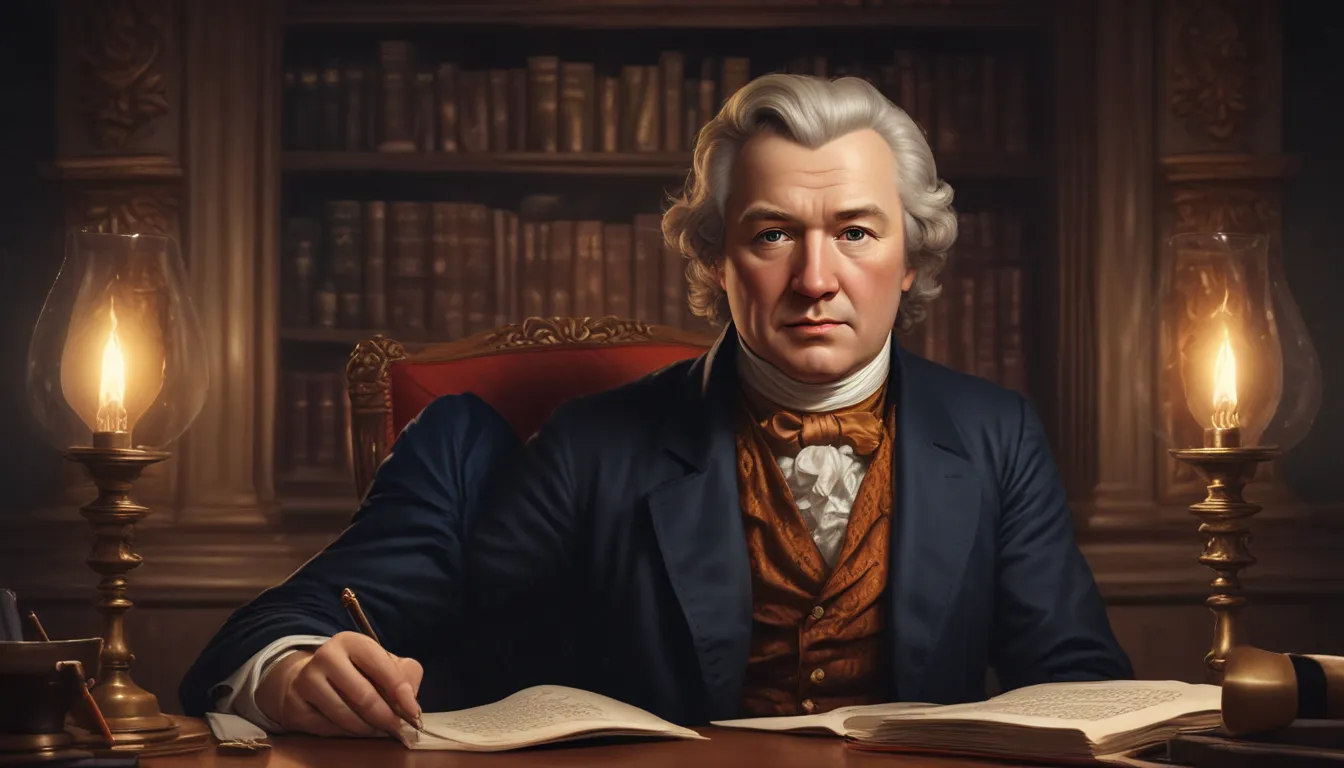The images in our articles may not match the content exactly. They are used to grab your attention, not to show the exact details in the text. The images complement the text but do not replace it.
In the realm of influential thinkers and philosophers, the name of Edmund Burke stands out prominently. Born in Dublin in 1729, Burke emerged as a key figure in the 18th-century intellectual movement known as conservatism. His profound insights into politics, society, and human nature continue to shape modern discourse. Join us as we delve into the intriguing life and contributions of Edmund Burke, exploring eight fascinating facts about this influential figure who laid the foundations of modern conservatism.
The Life and Legacy of Edmund Burke
Edmund Burke, a distinguished 18th-century Irish statesman and philosopher, rose to prominence as a beacon of intellectual thought during the Enlightenment period. His ideas on conservatism, justice, and governance have left an indelible mark on Western political theory. Emphasizing tradition, gradual change, and the preservation of social order, Burke is widely regarded as the father of modern conservatism.
Burke’s Magnum Opus: “Reflections on the Revolution in France”
At the heart of Burke’s legacy is his seminal work, “Reflections on the Revolution in France,” published in 1790. In this influential book, he critically analyzed the French Revolution and its radical ideals, cautioning against sudden societal upheaval that could lead to chaos and the erosion of valuable institutions. Burke’s insights continue to resonate in contemporary political thought.
Advocating for American Colonies and Constitutional Government
Throughout his career, Burke served as a member of the British Parliament, advocating for the rights of the American colonies and championing the principles of constitutional government. His strong belief in moral values in politics led him to argue for the importance of virtue and morality in guiding political decisions. Burke’s early support for the American Revolution showcased his nuanced approach to revolutionary change within the confines of established systems.
Influence on Conservative Political Thought
Edmund Burke’s writings have significantly influenced the development of conservative political thought. His ideas on limited government, constitutionalism, and social stability provided a solid foundation for future conservative thinkers and movements. Scholars and political theorists continue to study and debate Burke’s works, recognizing the enduring relevance of his perspectives on power dynamics, radicalism, and institutional preservation.
Unraveling the Enigma of Edmund Burke: FAQs
Who was Edmund Burke?
Edmund Burke was an Irish statesman, philosopher, and writer considered one of the founding fathers of modern conservatism. His influential works on political philosophy cemented his place as a key figure in Western political thought.
What were Edmund Burke’s main beliefs?
Burke believed in the importance of tradition, gradual change, and the preservation of societal values. His opposition to radicalism and advocacy for balanced governance shaped his approach to political philosophy.
What is Burke’s most famous book?
Burke’s most renowned work is “Reflections on the Revolution in France,” where he analyzed the French Revolution and articulated his conservative beliefs. This book solidified his position as a leading voice in the counter-revolutionary movement.
How did Edmund Burke influence conservatism?
Burke’s emphasis on tradition, gradual change, and societal institutions laid the groundwork for modern conservatism. His enduring legacy continues to inspire conservative thinkers and shape contemporary political discourse.
What is Edmund Burke’s legacy?
Edmund Burke’s profound impact on political philosophy and governance has left a lasting imprint on intellectual thought. His ideas resonate across generations, fueling debates on individual rights, governance systems, and the preservation of societal institutions.
Conclusion: Embracing the Intellectual Heritage of Edmund Burke
In conclusion, the legacy of Edmund Burke stands as a testament to the enduring impact of intellectual thought on society. From his staunch advocacy for tradition and societal values to his critique of revolutionary upheavals, Burke’s contributions have shaped modern political discourse. Whether through his influential writings, powerful speeches, or unwavering commitment to moral values in politics, Burke remains a formidable figure in the annals of history.
If you’re intrigued by the transformative power of revolutionary ideas and influential thinkers, delve into our articles on pivotal moments in history, ranging from Charles Dickens’ depiction of the French Revolution to Max Horkheimer’s contributions to social theory. Explore the depths of human experience, from the tumultuous streets of Paris to the vibrant intellectual salons of Europe, and witness how these pivotal moments and individuals have shaped our understanding of the world.
Join Us in Exploring the Legacy of Edmund Burke
As we embark on a journey of discovery and enlightenment, we invite you to engage with our content and contribute to the tapestry of knowledge. Our commitment to delivering accurate and engaging information is unwavering, fueled by the diverse insights and experiences of our dedicated contributors. Trust in our dedication to quality and authenticity as we navigate the rich tapestry of history and thought together.






